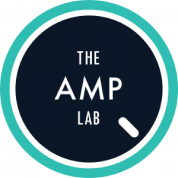Who we are
Since the invention of sound recording in the nineteenth century, and especially since the introduction of magnetic tape in the 1950s, a remarkable sonic record of literary ideas, performance, and expression has been captured on a wide range of audio media formats. The AMPLab was created in large part to collect, digitize, preserve, and study this invaluable body of audible material and provide the infrastructure needed to use literary sound archives in research, development, and training.
What we do
Located at Concordia University in downtown Montreal, the AMPLab is a dedicated space where equipment, expertise, and research come together through the exploration of literary questions through sound. By combining our knowledge of audio media technologies with methods of literary study, we engage in digital preservation, archival description, digital presentation, and critical analysis of diverse collections of literary audio that document literary readings and performances, interviews, conversations, pedagogy, and other audible activities that center around literary production and expression. AMPLab is also committed to working with literary and cultural communities across Canada to consult and assist in the digitization and preservation of their “hidden” collections in an effort to expand and diversify the audible literary record.
Why we matter
Students, professors, researchers, and other interested parties may engage with the AMPLab to carry out their own research-driven projects with the help of a wide range of specialized vintage and contemporary audio equipment and a highly experienced team of sound experts. The AMPLab is a unique space to pursue projects that explore literary sound studies.
How we can help
We are here to help you define and build your audio project as well as expand the scope of literary sound studies research. The AMPLab is available and equipped for a wide range of projects, including:
– Remediation practice and theory
– Metadata creation
– Audio signal analysis
– GUI design for literary audio
– Audiotextual criticism
– Sound recording
– Close and critical listening
– Sound development and experimentation
– Digital audio data creation
– And more
Get in touch to learn more.

